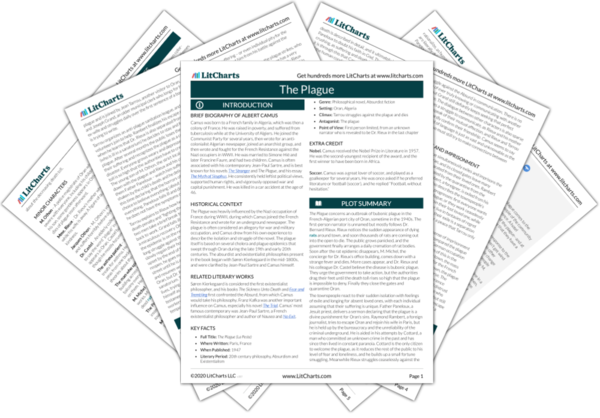Father Paneloux Quotes in The Plague
Part 2 Quotes
“If today the plague is in your midst, that is because the hour has struck for taking thought. The just man need have no fear, but the evildoer has good cause to tremble. For plague is the flail of God and the world His threshing-floor, and implacably He will thresh out His harvest until the wheat is separated from the chaff.”
Part 4 Quotes
“I understand,” Paneloux said in a low voice. “That sort of thing is revolting because it passes our human understanding. But perhaps we should love what we cannot understand.”
Rieux straightened up slowly…
“No, Father. I’ve a very different idea of love. And until my dying day I shall refuse to love a scheme of things in which children are put to torture.”
Tarrou, when told by Rieux what Paneloux had said, remarked that he’d known a priest who had lost his faith during the war, as the result of seeing a young man’s face with both eyes destroyed.
“Paneloux is right,” Tarrou continued. “When an innocent youth can have his eyes destroyed, a Christian should either lose his faith or consent to having his eyes destroyed. Paneloux declines to lose his faith, and he will go through with it to end. That’s what he meant to say.”












